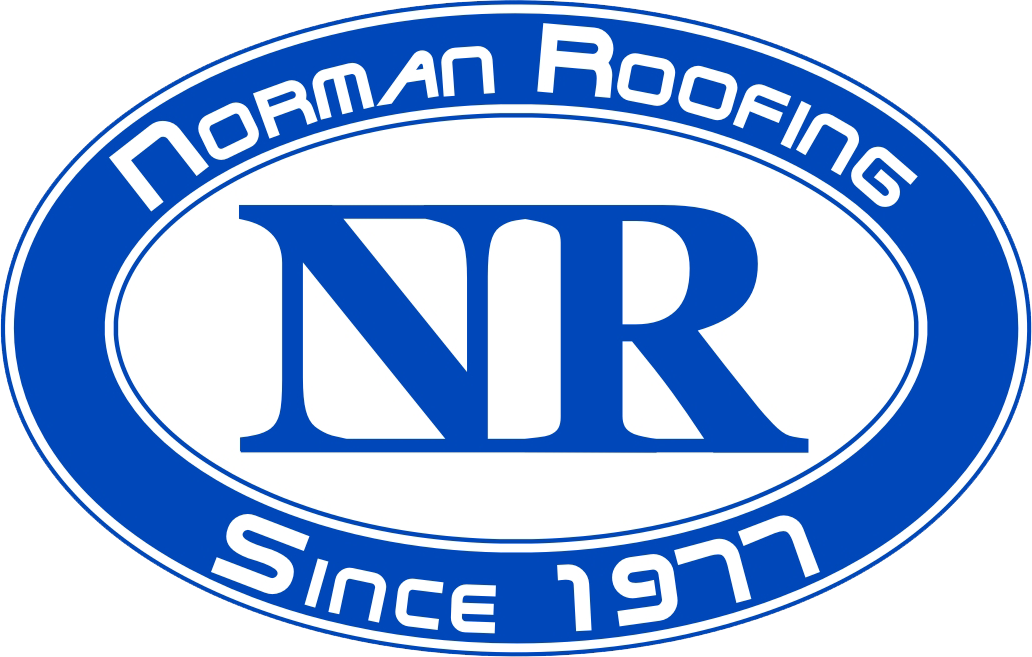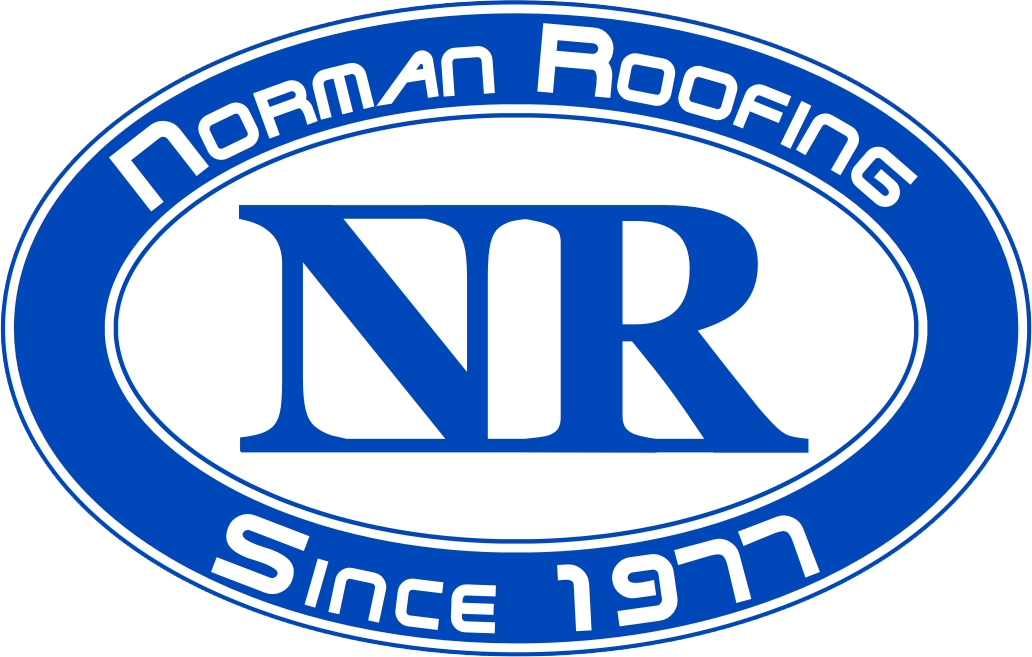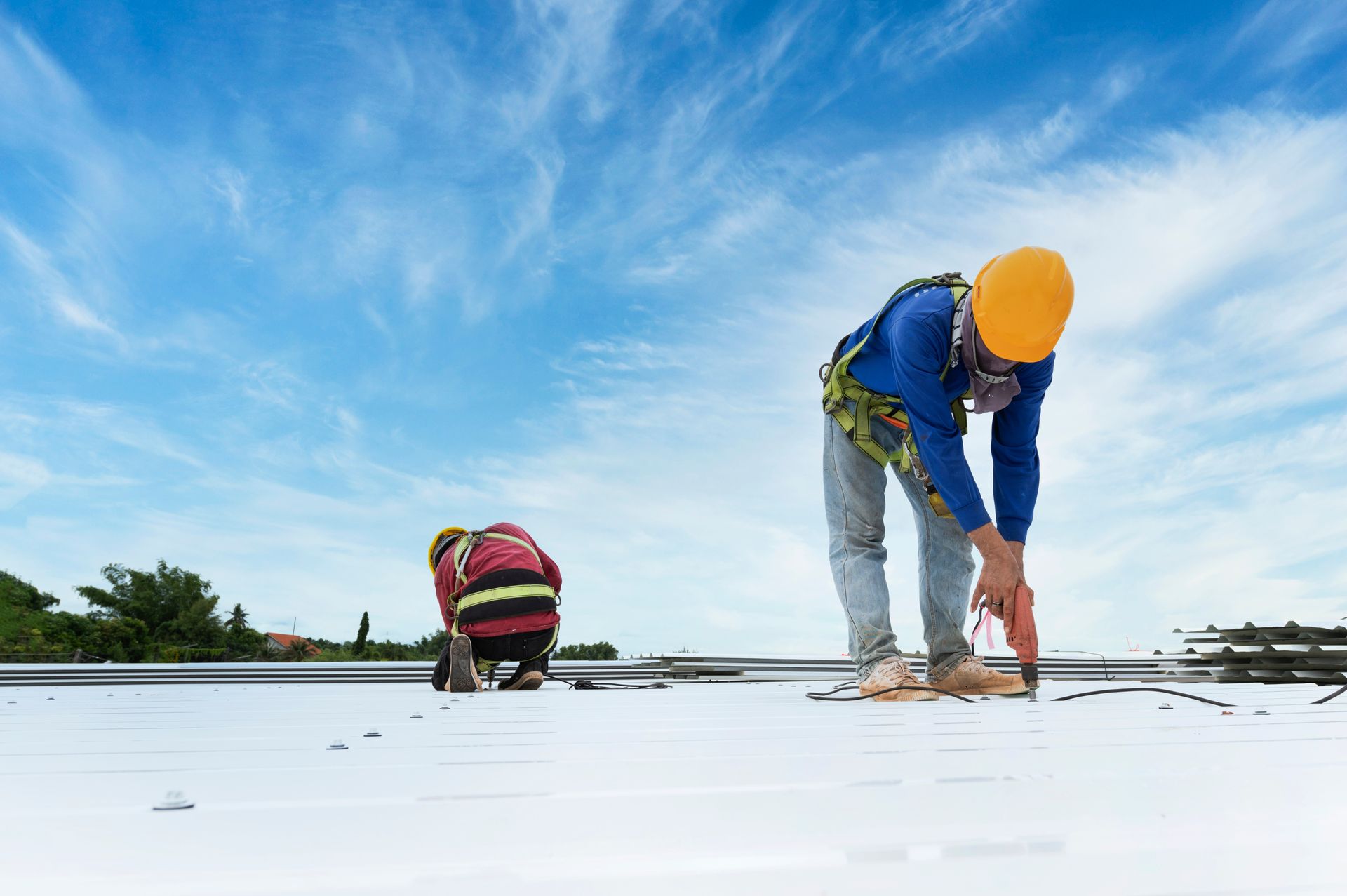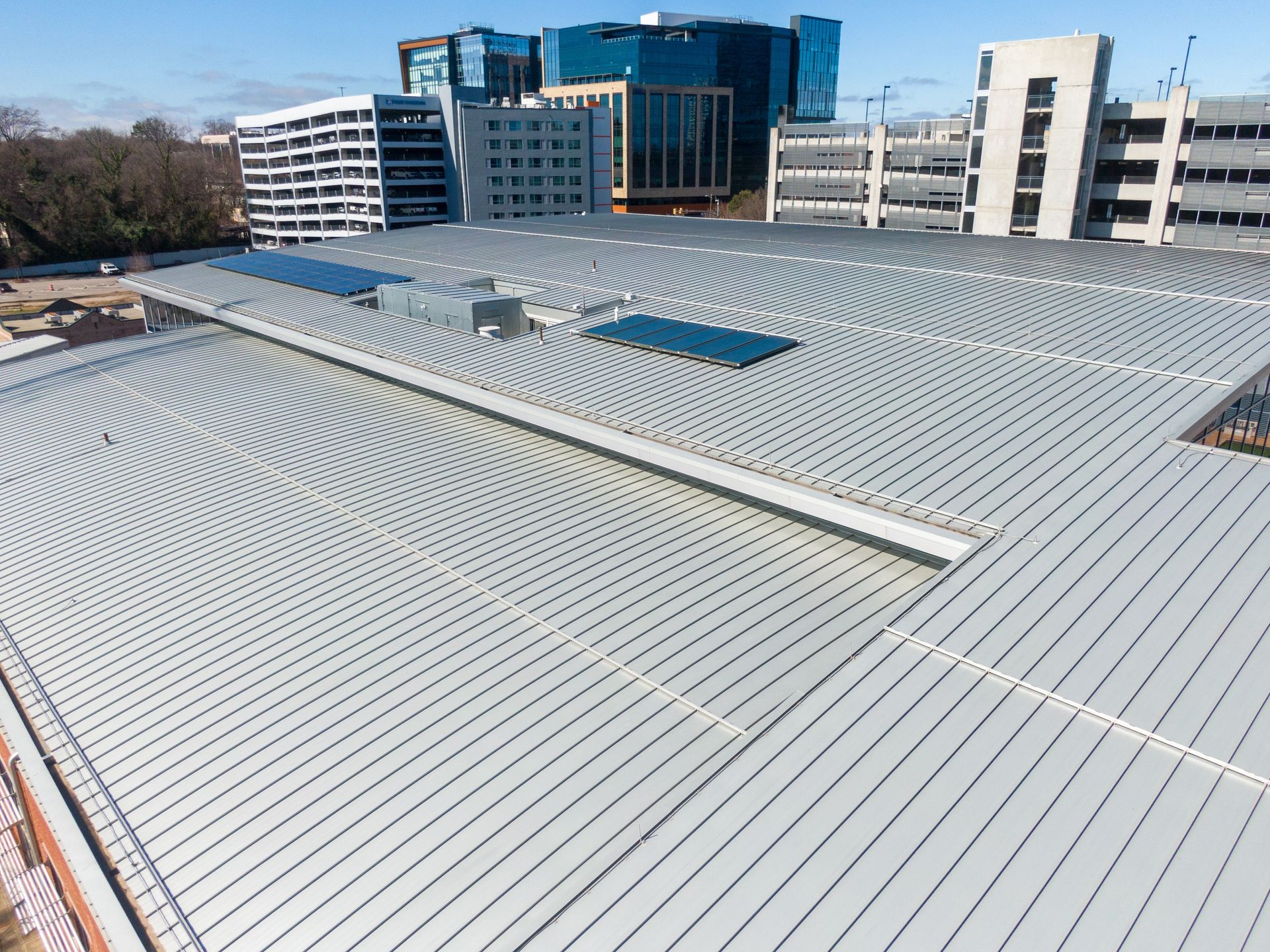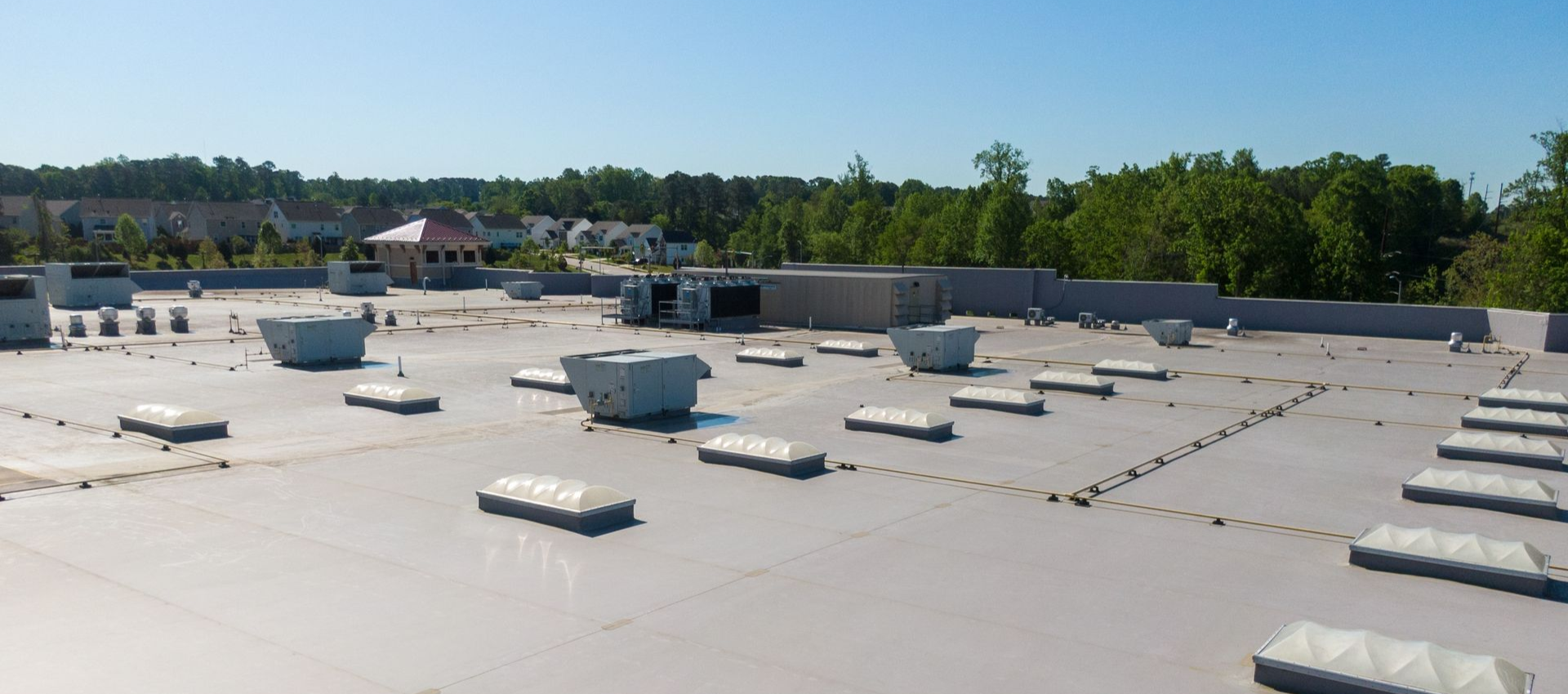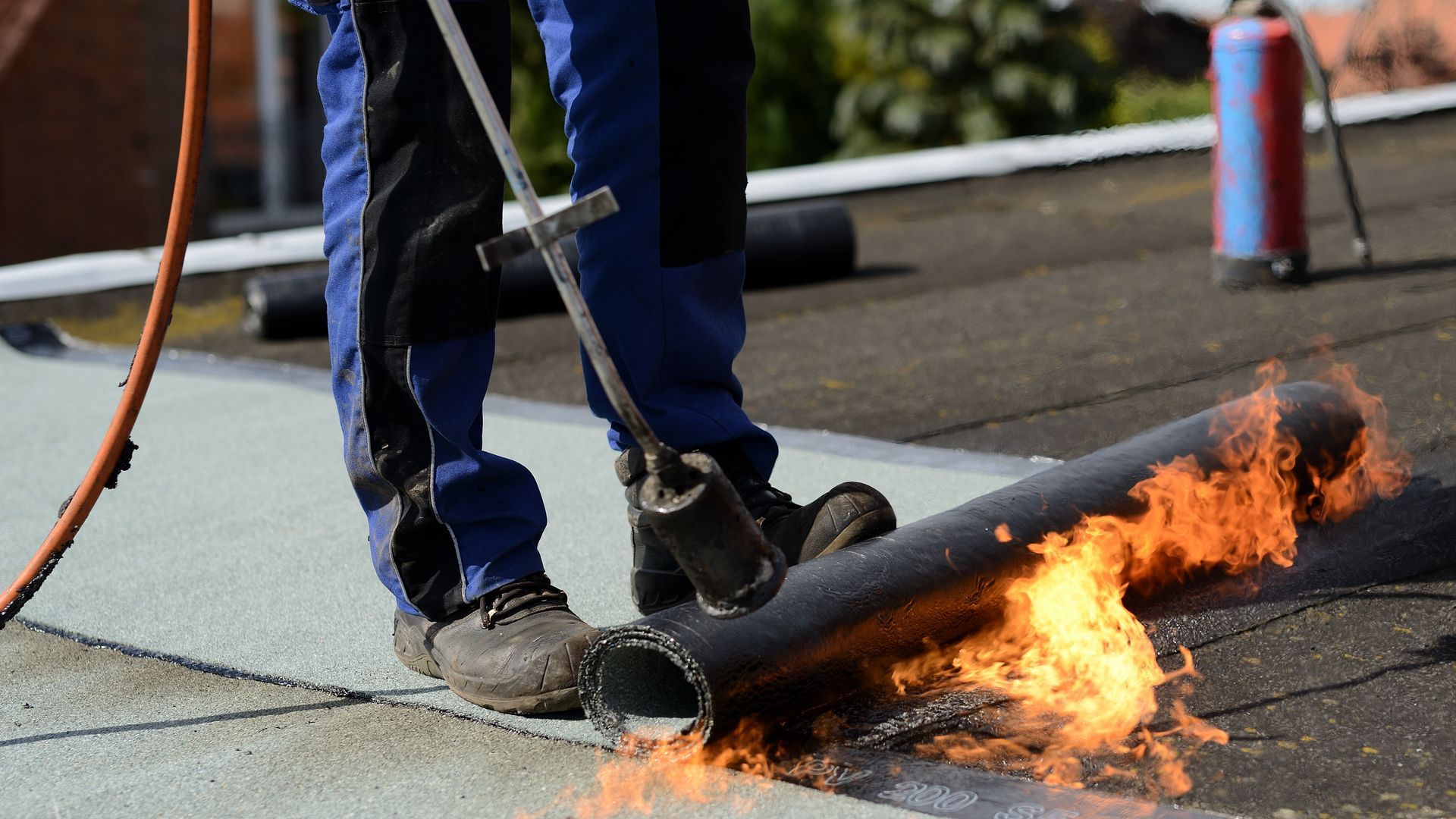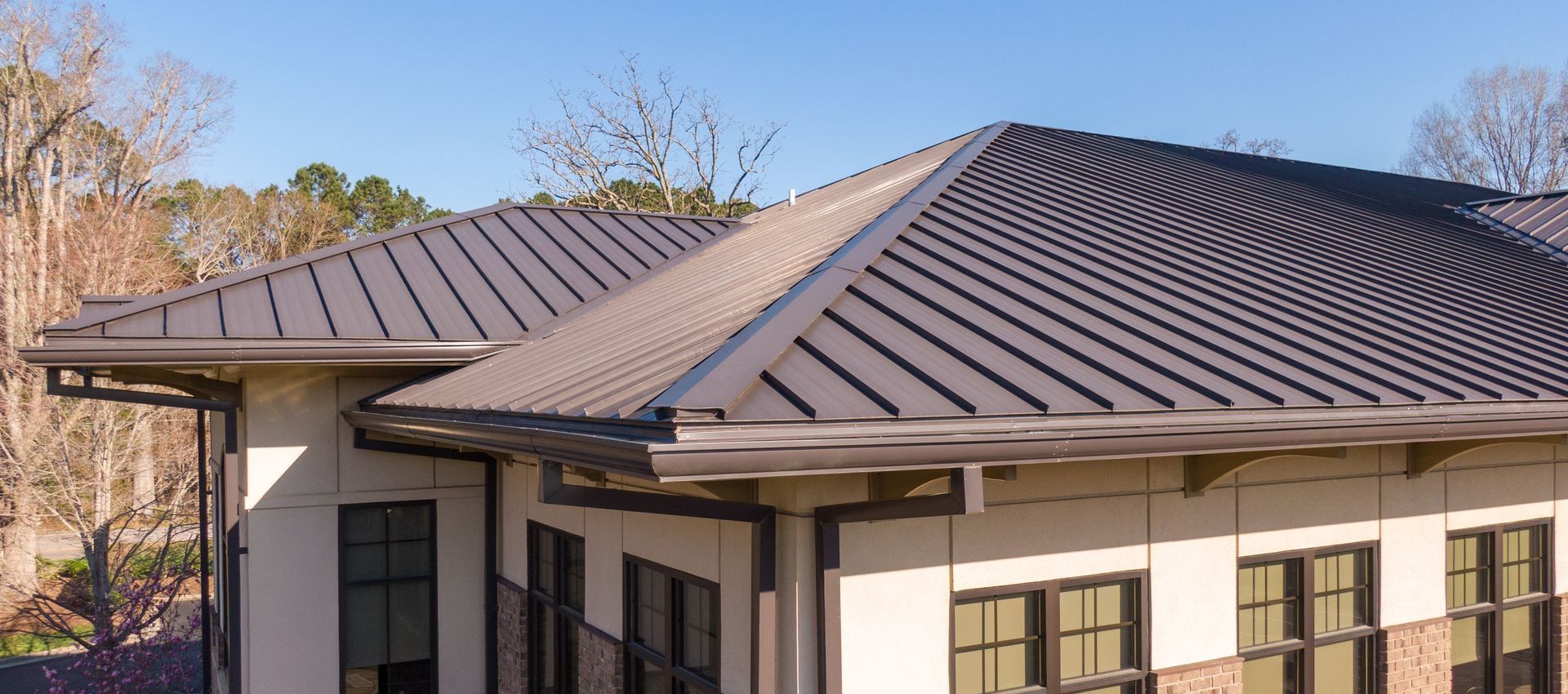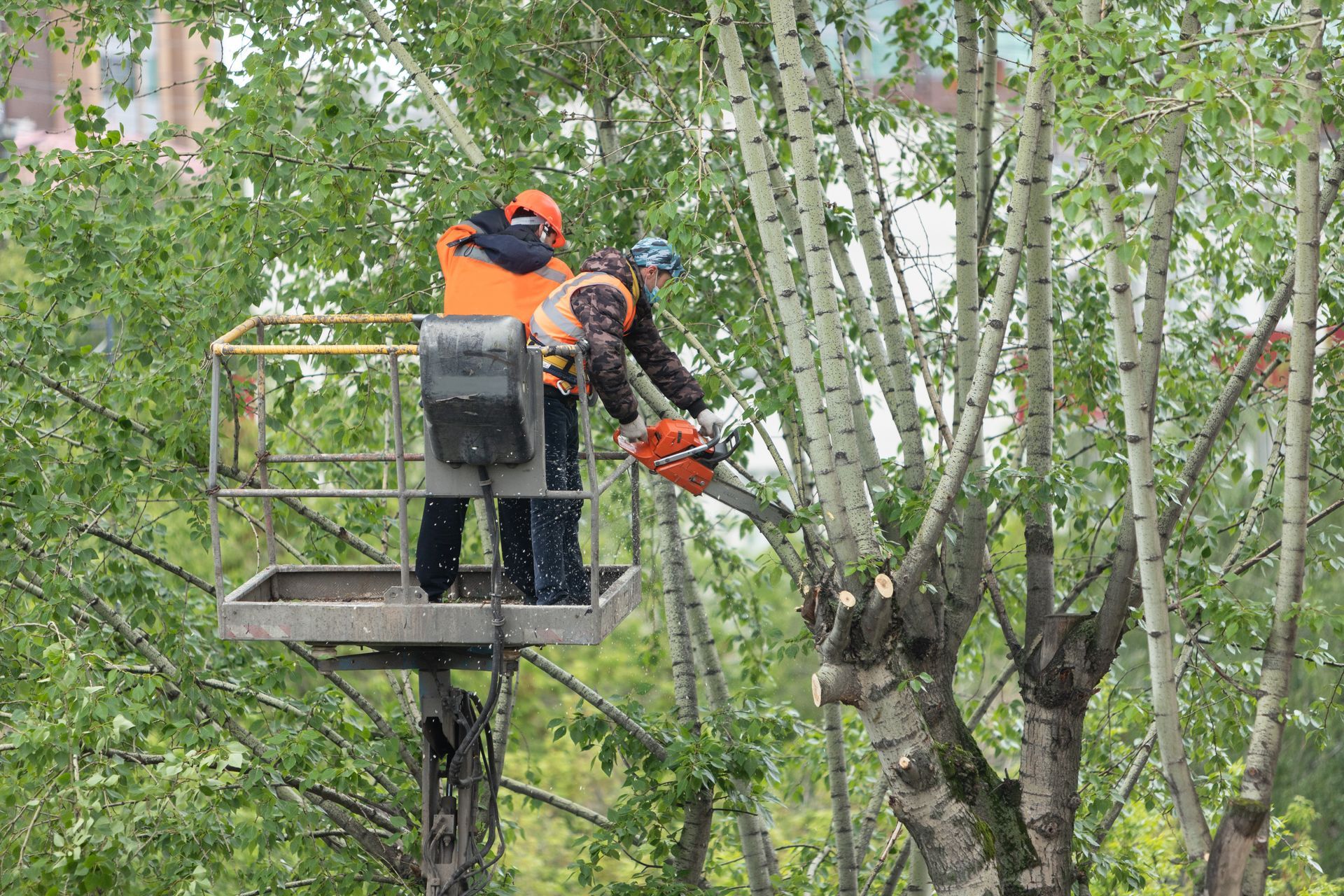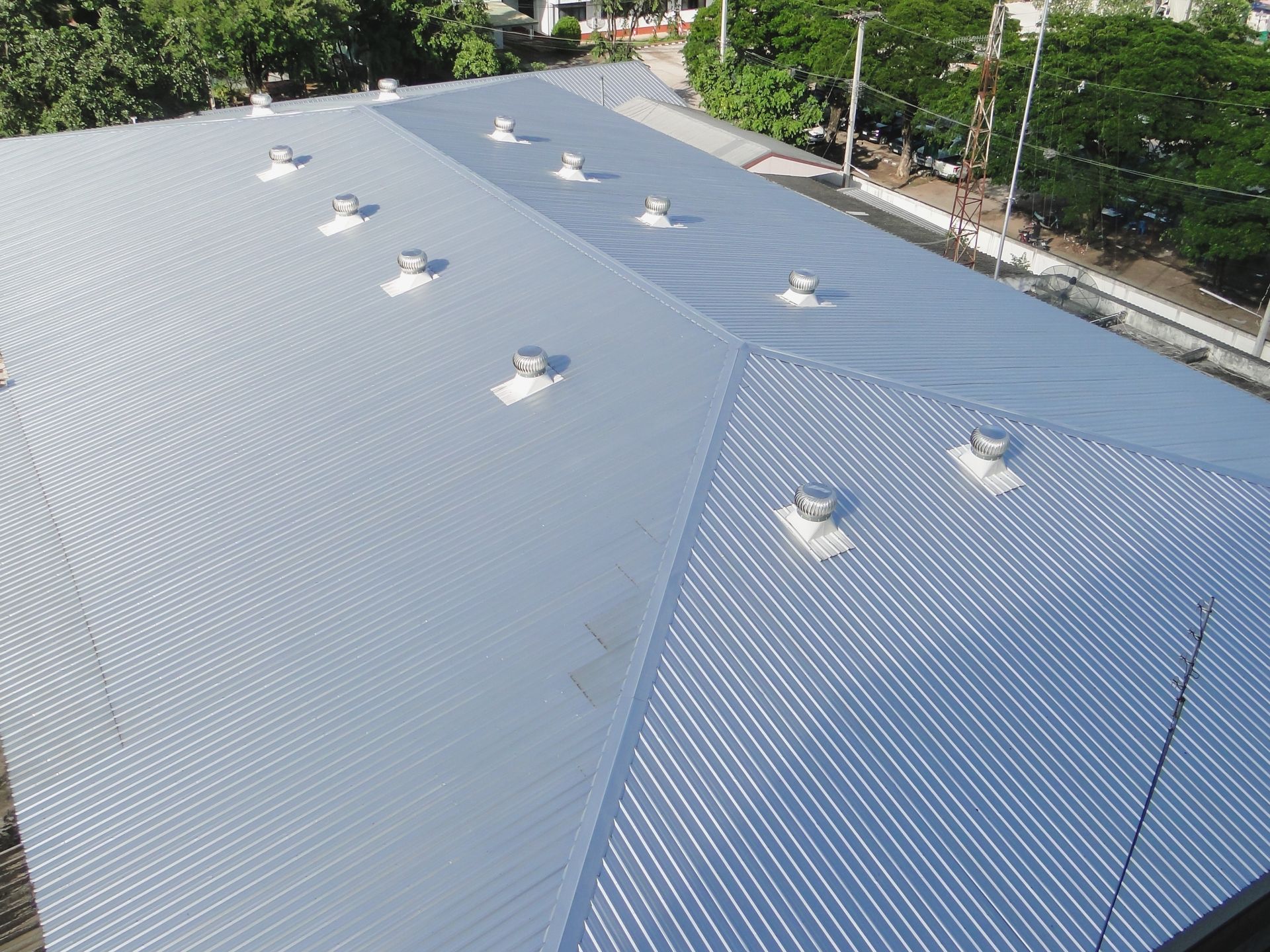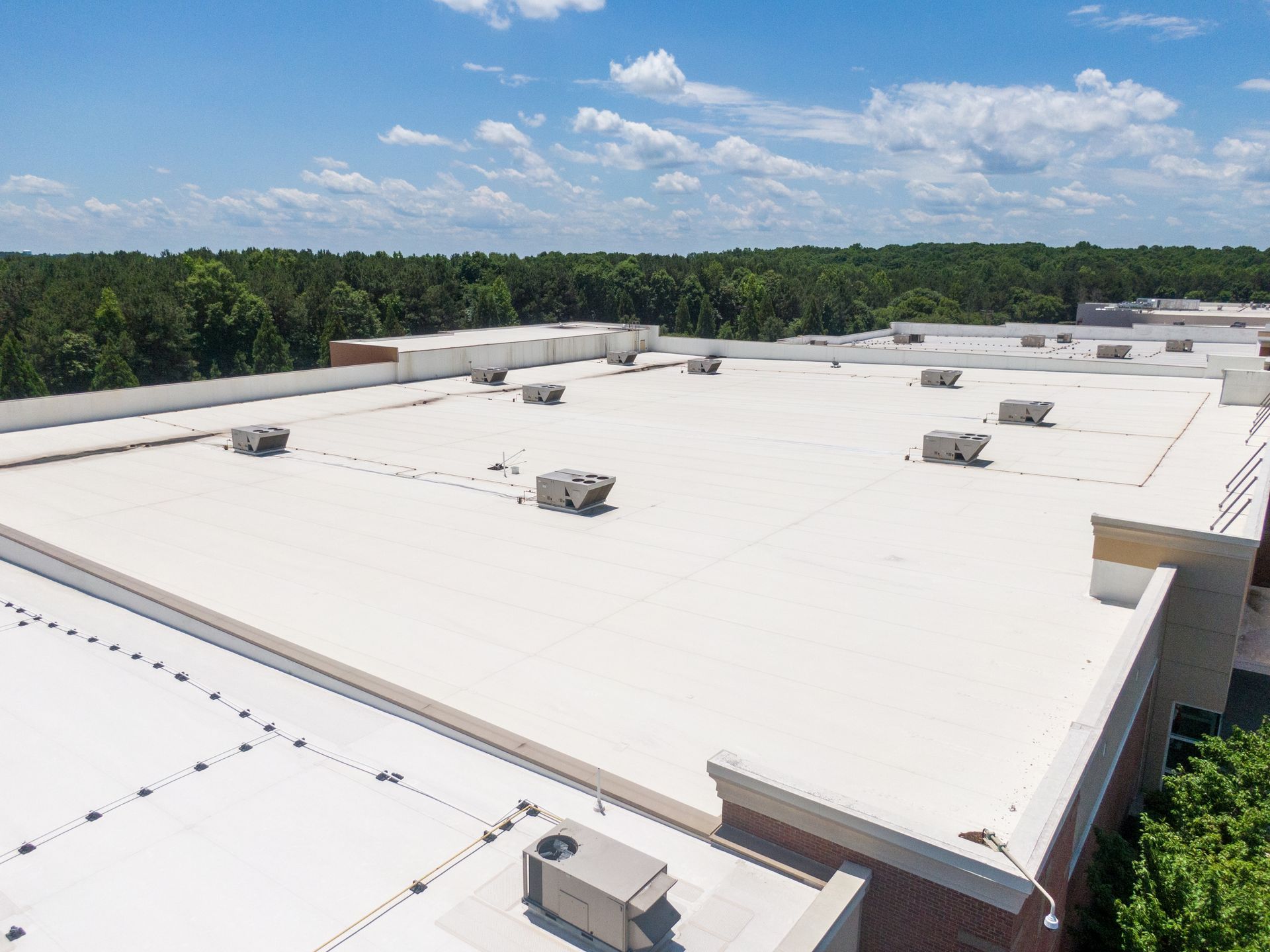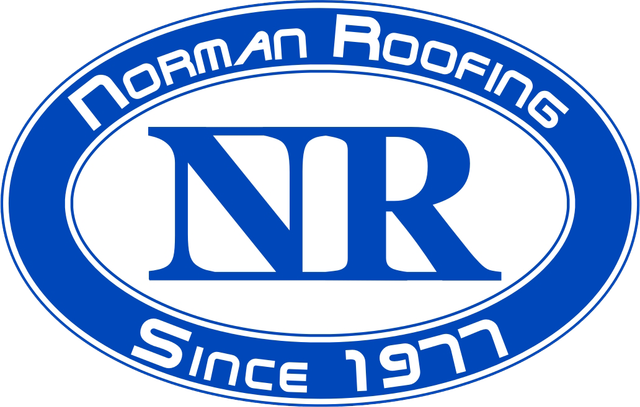Protect Your Roof: 4 Common Commercial Roofing Issues in MS
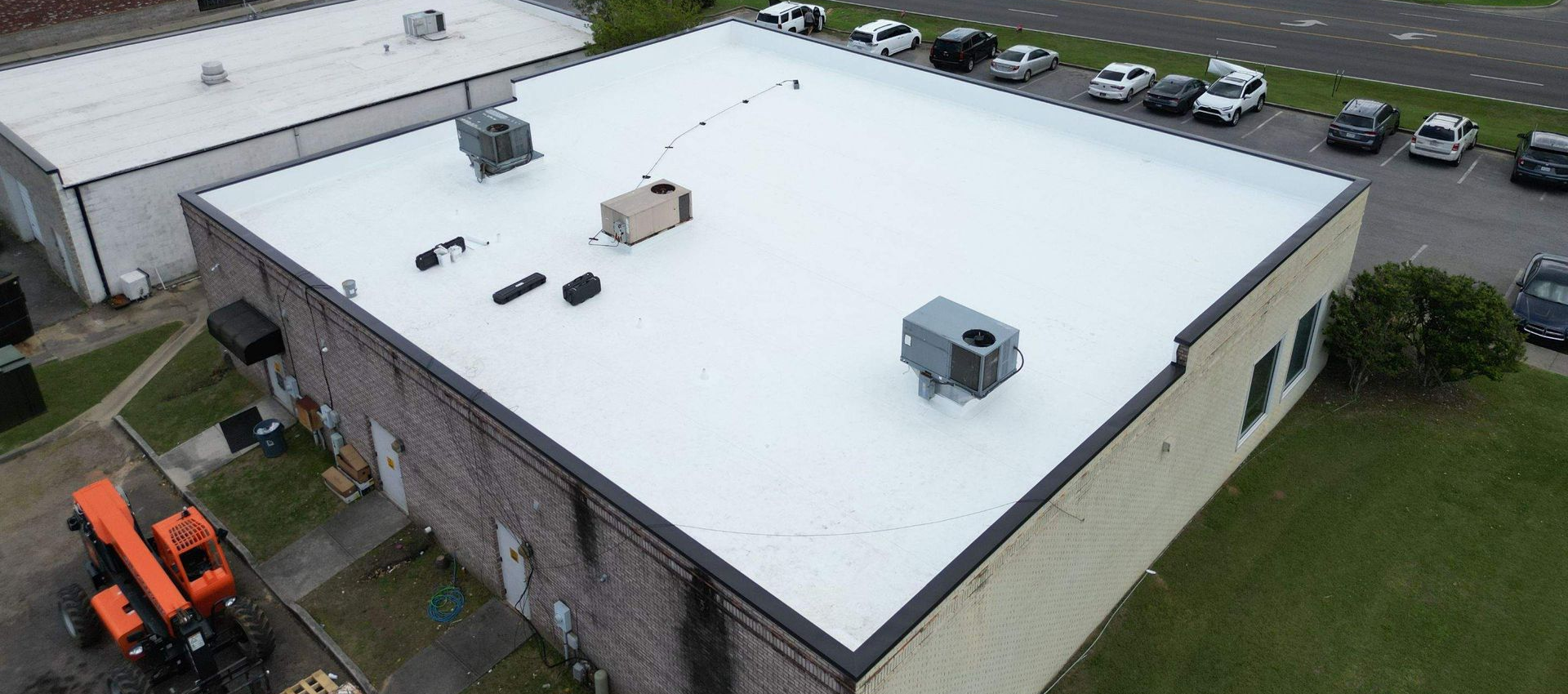
Commercial roofs in Mississippi face a unique set of challenges due to the state’s hot, humid climate and severe weather conditions. If left unchecked, small issues can quickly grow into costly problems that disrupt business operations and shorten a roof’s lifespan. To help property owners stay ahead, here are four of the most common commercial roofing issues in Mississippi and what you can do to protect your investment.
1. Excessive Humidity
Due to the Mississippi’s high humidity, commercial roofs face an increased risk of mold and algae growth over time. While metal roofs and single-ply membranes such as TPO, PVC, and EPDM are designed to resist moisture intrusion, they are not completely immune.
2. Corrosion From Saltwater
For some commercial roofs, the risk of corrosion is especially high in Mississippi since it borders the Gulf of Mexico. Due to the salt and moisture brought in from the Gulf, the components on your roof can suffer from premature wear.
Constant exposure to salt can rust your roof’s panels, fasteners and flashing, weakening your system’s structural integrity and shortening its lifespan. It’s incredibly important that businesses with metal and asphalt shingle roofs stay up-to-date on routine inspections, protective coatings and timely repairs. All of these factors can reduce the effects of corrosion and extend the lifespan of your roofing system.
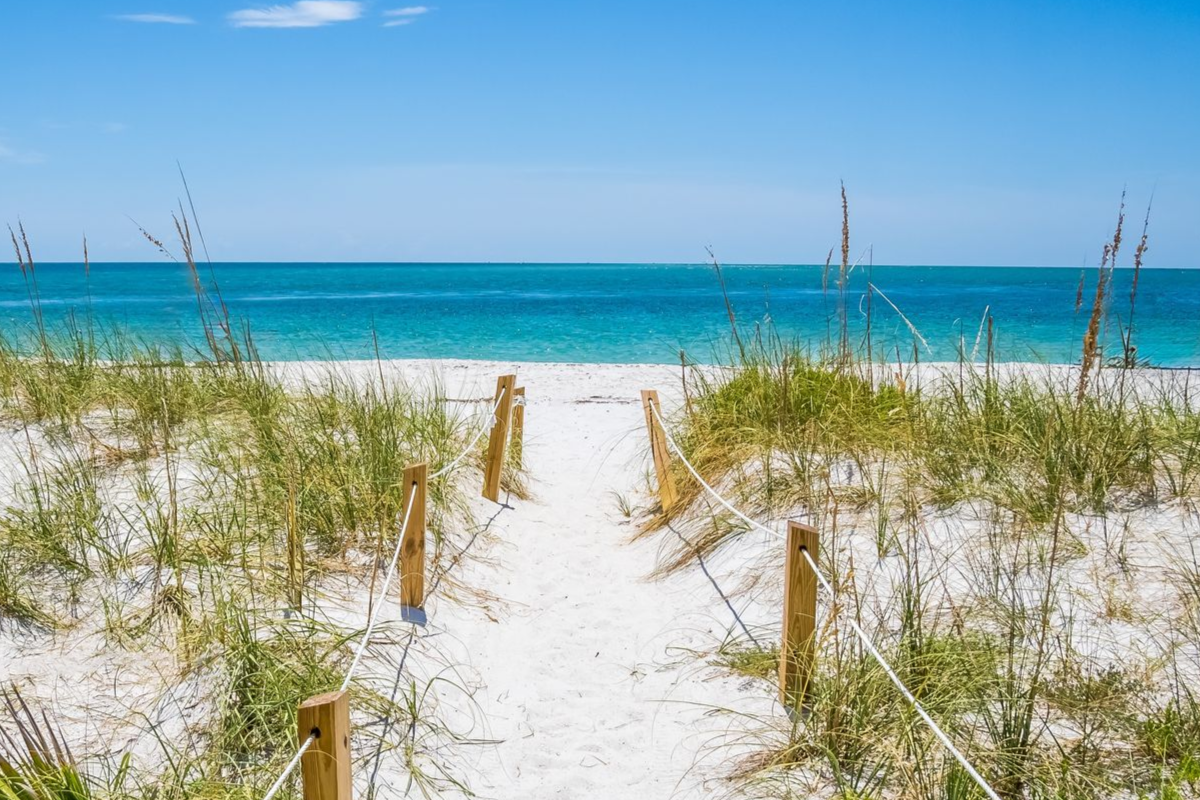
3. UV Radiation
In Mississippi, the intense sunlight and high levels of UV radiation can be especially harsh on commercial roofing systems. Prolonged exposure to the sun’s rays can dry out and weaken BUR and modified bitumen, causing them to crack, blister and lose their protective oils over time.
Single-ply membranes like EPDM are also prone to shrinking when exposed to constant UV light. These issues not only shorten the lifespan of the roof but also increase the risk of leaks and energy inefficiency. To lower the risk of UV damage, it's not uncommon to use reflective coatings to deflect sunlight and help protect your roof’s surfaces.
4. High Winds, Flying Debris
High winds and flying debris are another threat to commercial roofs in Mississippi, especially during storm season. Strong gusts can lift and loosen roofing materials, making systems like single-ply membranes particularly vulnerable at their seams and edges.
Asphalt shingles and modified bitumen roofs are also at risk, since flying debris can cause significant damage, leaving the roof open to water intrusion. Even metal roofs can suffer dents or damage if struck by large debris. Regular maintenance, secure installation and impact-resistant materials can help protect your roof from high winds and debris.
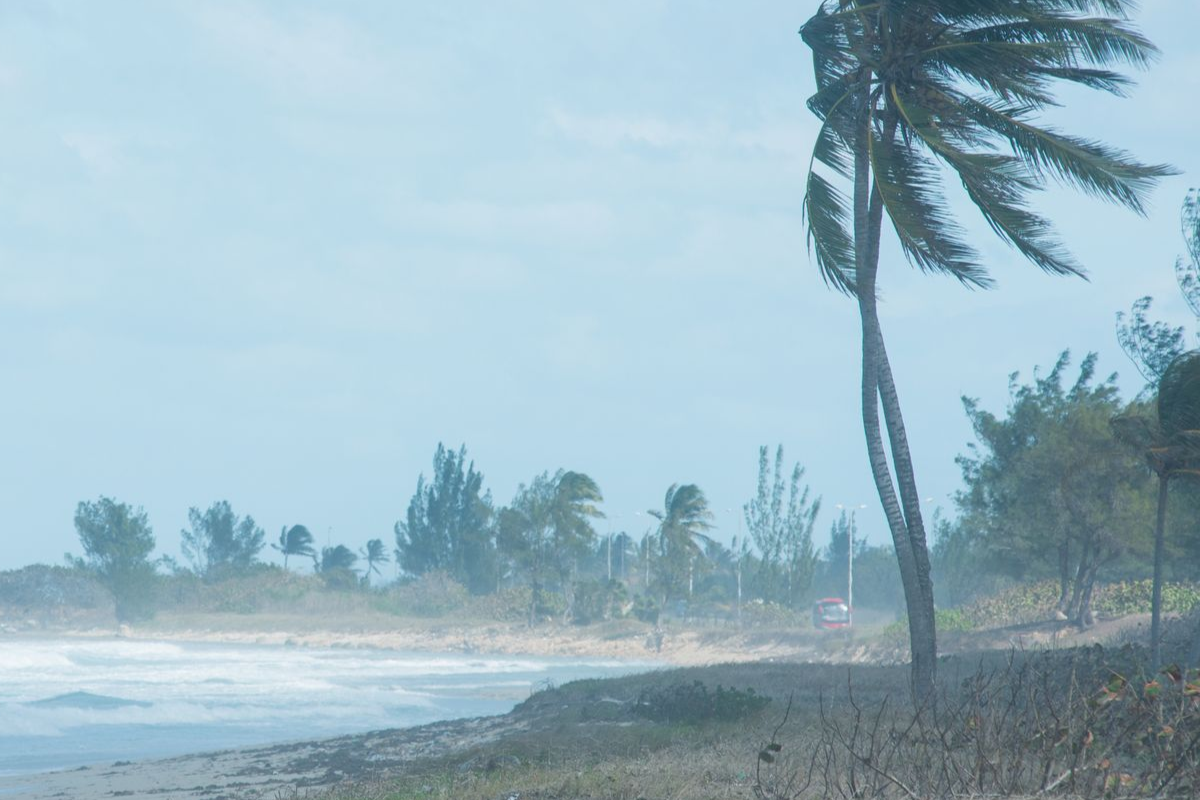
Protect Your Roof Year-Round With Routine Maintenance
While you can’t completely avoid Mississippi's harsh climate and environmental conditions, you can mitigate their impact with routine maintenance.
While it’s impossible to fully escape the effects of Mississippi’s harsh climate and environmental conditions, routine maintenance can help fortify your roof. Regular inspections and routine maintenance protect your system from potential damage and allow roofers to identify small issues before they develop into costly repairs. Some examples of routine maintenance include:
- Recurring inspections – Helps roofers spot early signs of wear, corrosion or storm damage before they turn into expensive repairs.
- Cleanings – Regularly removing leaves, branches and other debris prevents clogged drains and reduces the risk of water pooling on the roof.
- Resealing seams – Keeping seams properly sealed helps prevent leaks and strengthens vulnerable areas where roofing materials connect.
- Applying protective coatings – Coatings add an extra layer of defense against UV rays, moisture and temperature fluctuations, helping extend the roof’s lifespan.
Need Experienced Commercial Roofers? Call Norman Roofing Today!
Whether you need routine maintenance or emergency repairs, our experts at Norman Roofing are here to help! Based in Meridian, we’ve proudly served communities across Mississippi and Alabama for 48 years.
Have questions or want to learn more about our roofing options? Call our team today at 601-483-4079 to schedule an estimate or service. For more information about commercial installations and replacements, visit our website by clicking the link
here.

